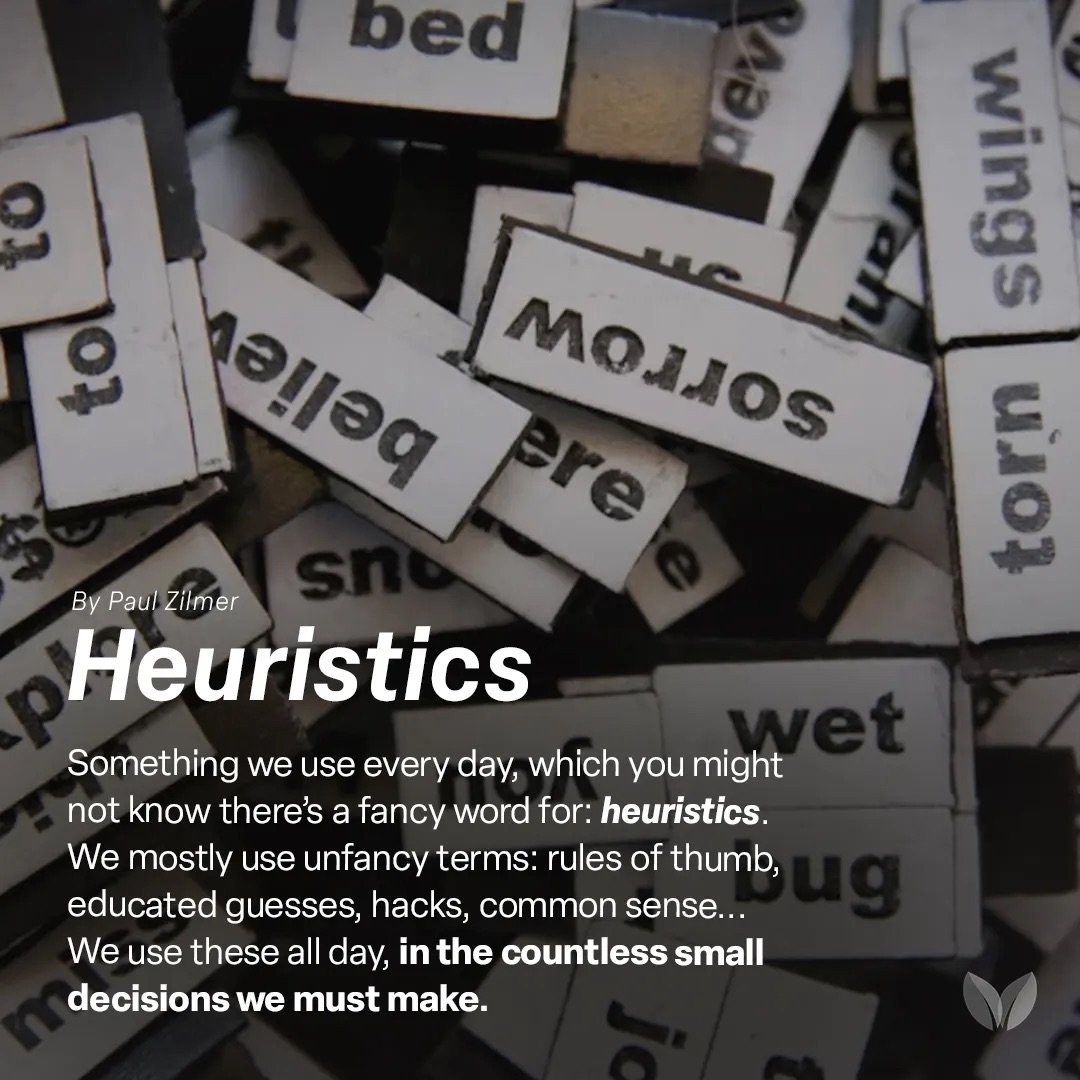Heuristics
Something we use every day, which you might not know there’s a fancy word for: heuristics. We mostly use unfancy terms: rules of thumb, educated guesses, hacks, common sense. One writer I came across says, “Heuristics reduce cognitive load, simplify choices, and allow us to act quickly instead of needing to consciously think about all the options.” We use these all day, in the countless small decisions we must make. We would hardly be able to function without them.
But the same writer cautions, “Heuristics can also generate inaccurate conclusions and irrational actions. In this way, they frequently lead to biases – irrational, often unconscious, influences on behavior.”
I’m sure you can see the spiritual application. Are heuristics good or bad? Well, yes. For example, Jesus urged application of one heuristic—if he could do miracles, then he must be from God, and people should believe him. (John 5:36 & 10:37-38) There were some who embraced this principle, and came to the right conclusion. (John 3:2 & 9:31-33)
On the other hand, the resistance Jesus encountered came from other heuristics, for example that healing was “work” and therefore was forbidden on the Sabbath. (Matthew 12:10-14) And that the source of “uncleanness” is external. (Mark 7:14-23)
So it’s not at all clear cut. There are good and helpful heuristics, and bad and misleading (or worse) heuristics. How do we know whether we are on the good side or the bad side, as we exercise the rules of thumb we use every day? It would be nice if we had a heuristic to give us a simple answer!
We don’t.
Heuristics are sometimes referred to as “simplifying assumptions”. We—often unconsciously—set aside some possibilities when making plans or decisions. We simplify. That’s fine, essential even. But it’s critically important that we are aware of what we’re assuming. Unexamined assumptions can lead us to terrible decisions with terrible outcomes.
Our nature works against us. Our pride can lead us to think we’re much more self-aware than we actually are, that we are in fact wise and have considered everything. Our desires may attract us powerfully in one direction, and cause us to discount any factor that’s contrary to what we want.
Employing appropriate and well-thought-out heuristics is what we call wisdom. Experience, especially painful experience, can help. But it doesn’t come with a guarantee. What we think is wisdom may actually be that we’re set in our ways.
What does God’s word tell us? “The fear of the LORD is the beginning of wisdom, and the knowledge of the Holy One is insight.” (Proverbs 9:10) As you probably know, the “fear” here is reverence. Solomon is telling us what the starting place is. Honoring, revering the One God, is where we begin.
What does this do for us, practically speaking? I think it tells us to ask, “Do my assumptions acknowledge the role of the Lord in this decision, this plan?” Asking and answering the question need not take a long time. You will know immediately. True wisdom is refusing to put on blinders to avoid seeing the answer.
Reverence for the Lord “lightens the cognitive load”, simplifies choices, allows us to act quickly. It counteracts biases and inaccurate conclusions. It’s the starting point for wisdom in the thousand decisions you’ll make today.
Love, Paul


